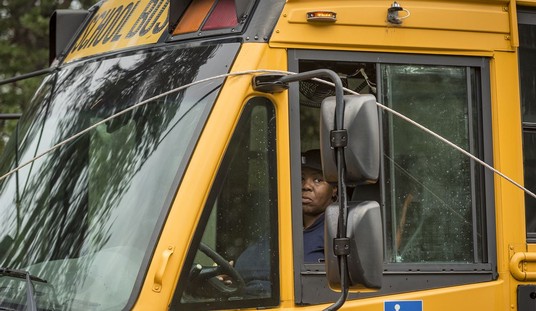It is now fashionable for journalists to complain when news outlets cover the antics of celebrities like Britney Spears, Lindsey Lohan, and Paris Hilton. News of the rich, famous, and badly-behaved is beneath them, many claim. But the truth is that journalists have always been in exactly the same business as Hollywood — the entertainment industry. And if that is not clear now, it soon will be.
How could journalists be entertainers when they claim to perform somber duties critical to the functioning of American democracy? To understand this, it is necessary to understand what entertainment is and how it works. At its root, entertainment is about providing us with diversion from the stresses and ordinariness of our day-to-day lives. It gives our minds a respite from everyday personal thoughts, concerns, and worries — sometimes by displacing them with other’s thoughts, concerns, and worries, and sometimes by giving us more interesting, exciting, relaxing, or otherwise more pleasurable things to think about.
Now, look at the front page of your newspaper — is that really news that directly affects our day-to-day lives, or is it diverting us with news about the lives of others? The top stories in metro, national, and international news almost never impact our personal lives directly. News that does plays out at much, much lower levels — our neighborhoods, our schools, our jobs, our stores, and our roads. Top stories rarely include news about the people who affect our lives the most — our friends, family, and co-workers. These gaping news voids are now being filled by social computing products like Facebook.
Journalists and many Americans might disagree strongly with this assessment, insisting that politics and world events do directly affect our lives and it is irresponsible for citizens to ignore them. Yes, on very rare occasions these stories do affect us directly and we as citizens must take action on them. But, the fact that these occasions are so rare while their coverage is so frequent proves the point that most of news is entertainment. Why is it necessary to receive two years of Presidential election coverage when we can pick-up the necessary information quickly and efficiently immediately before our once-every-four-year state primaries and general elections? The real reason for this frequent coverage is that mainstream outlets are providing us with material that fulfills a variety of entertainment needs. For many, these include the satisfaction and comfort that come with feeling well-informed, the same benefits provided by alternative entertainment options like reading a book or visiting a museum. For others, there is entertainment value in the thrill of a Presidential horse race or a sense of belonging to a movement bigger than ourselves.
Once beyond the front page, it becomes undeniable that journalists are in the entertainment business. In the sports pages we feel the rush that comes with competition, live vicariously through the heroics of sports figures, and experience a range of emotions not available to us in our hum-drum day-to-day lives — victory, joy, mastery, and camaraderie.
In entertainment news, we momentarily trade our lives for more fabulous ones and live vicariously through the supposedly “glamorous” lives of those who are more beautiful, wealthy, or powerful than we are. Gossip pages that provide us with the troubles of the celebrated and successful help us even-up the score with those we envy, feeding our pride to make our own mediocre lives seem more acceptable. And, news of murders, sex crimes, and car accidents quench our all-too-human thirsts for lust and morbid curiosity.
When all forms of media ultimately converge onto the Internet, within 10 years according to Microsoft CEO Steve Ballmer, it will become obvious that mainstream news has been a form of entertainment all along. Yes, couch potatoes might every once in awhile have to get-up and become desk potatoes or mobile potatoes. They might also have to trade their remote control for a mouse.
But when they want entertainment, they will be selecting among online substitutes for what was formerly provided by newspapers, television, radio, magazines, and movies, all of them just one mouse-click away.
But the cruelest trick the Internet will play on Old Media is not outing them as entertainers, but forcing them to compete with the unexpected and unrespected — blogs, porn, video games, DVD’s, and even the ghosts of former selves — archives of older articles, older movies, and older programs never previously available. There’s no business like show business which, unfortunately for journalists, is no business they really know.
Steve Boriss blogs at The Future of News. He works for Washington University in St. Louis, where he is Associate Director of the Center for the Application of Information Technology (CAIT) and teaches a class called “The Future of News.”









Join the conversation as a VIP Member